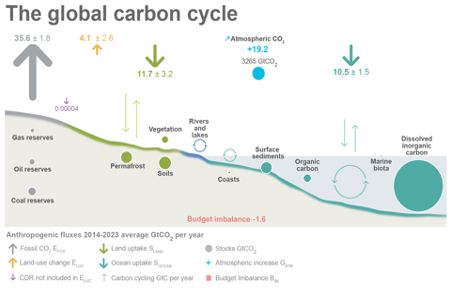
Read more atmosphere.copernicus.eu/cams-methane...
#CopernicusAtmosphere
Read more atmosphere.copernicus.eu/cams-methane...
#CopernicusAtmosphere
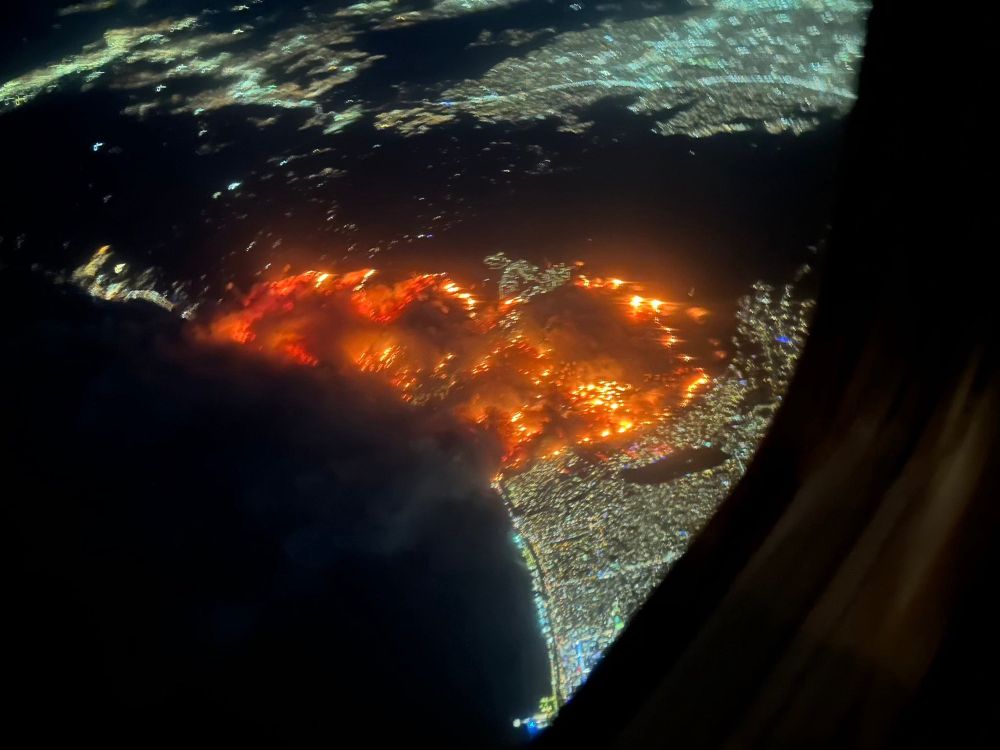
Learn more at: lnkd.in/em2J3SxM
Learn more at: lnkd.in/em2J3SxM
@pedramh.bsky.social
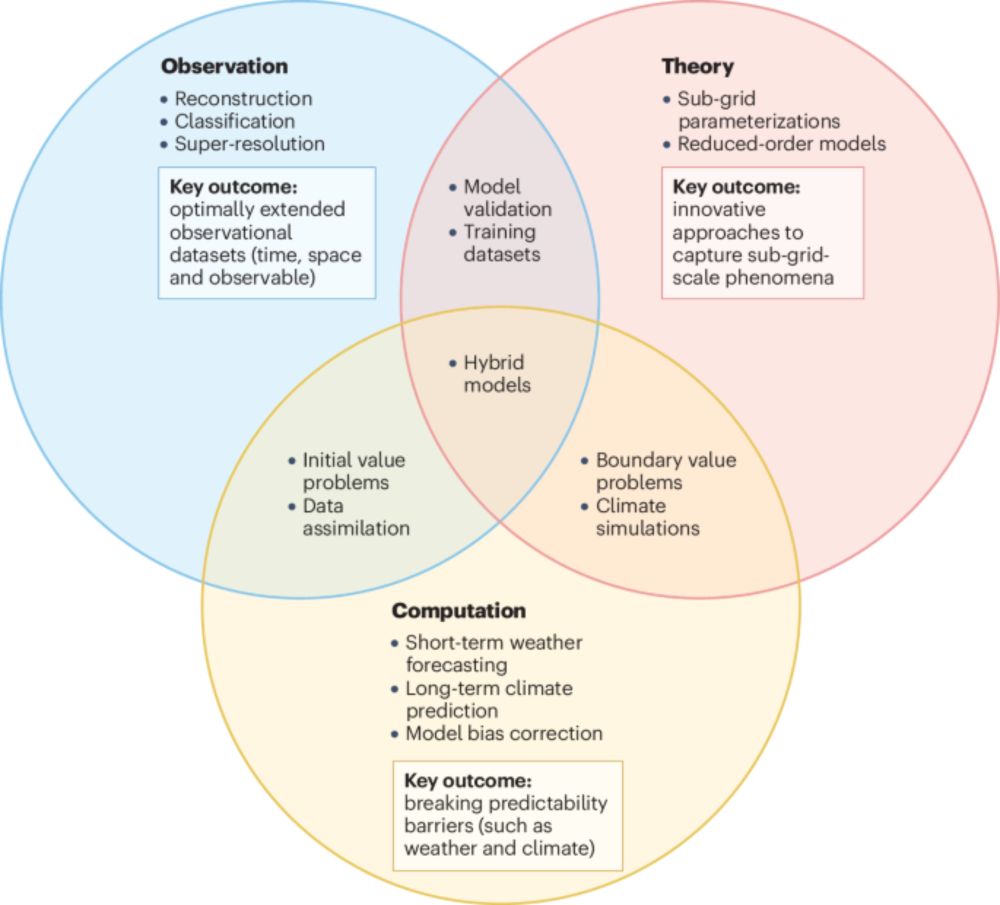
@pedramh.bsky.social
news.mit.edu/2024/reality...
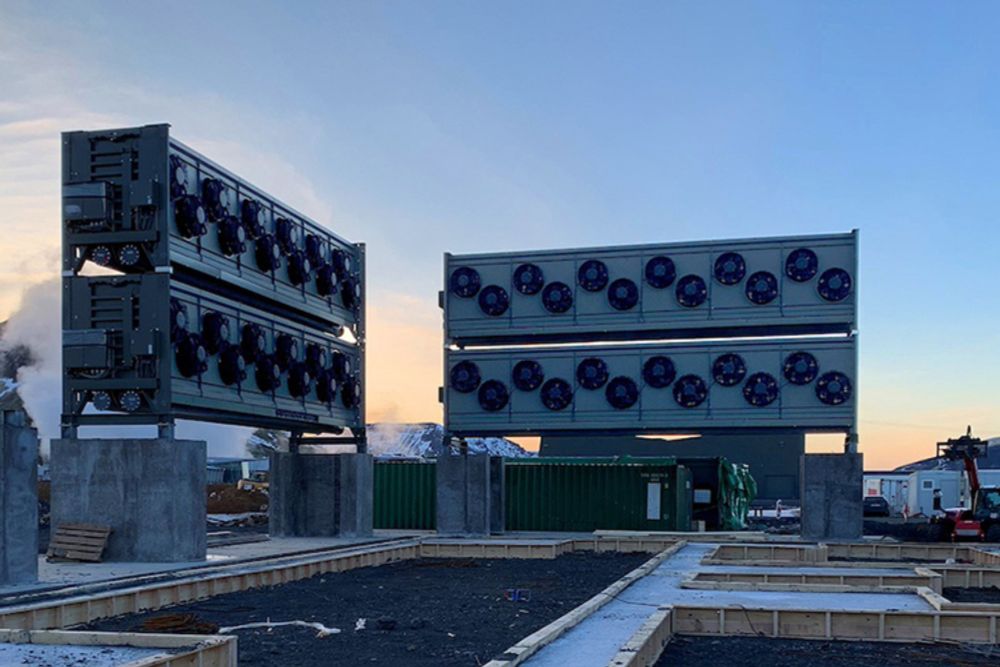
news.mit.edu/2024/reality...
The C3S Atlas allows you to explore and analyse past and future climate monitoring and change information in a flexible way.🧵
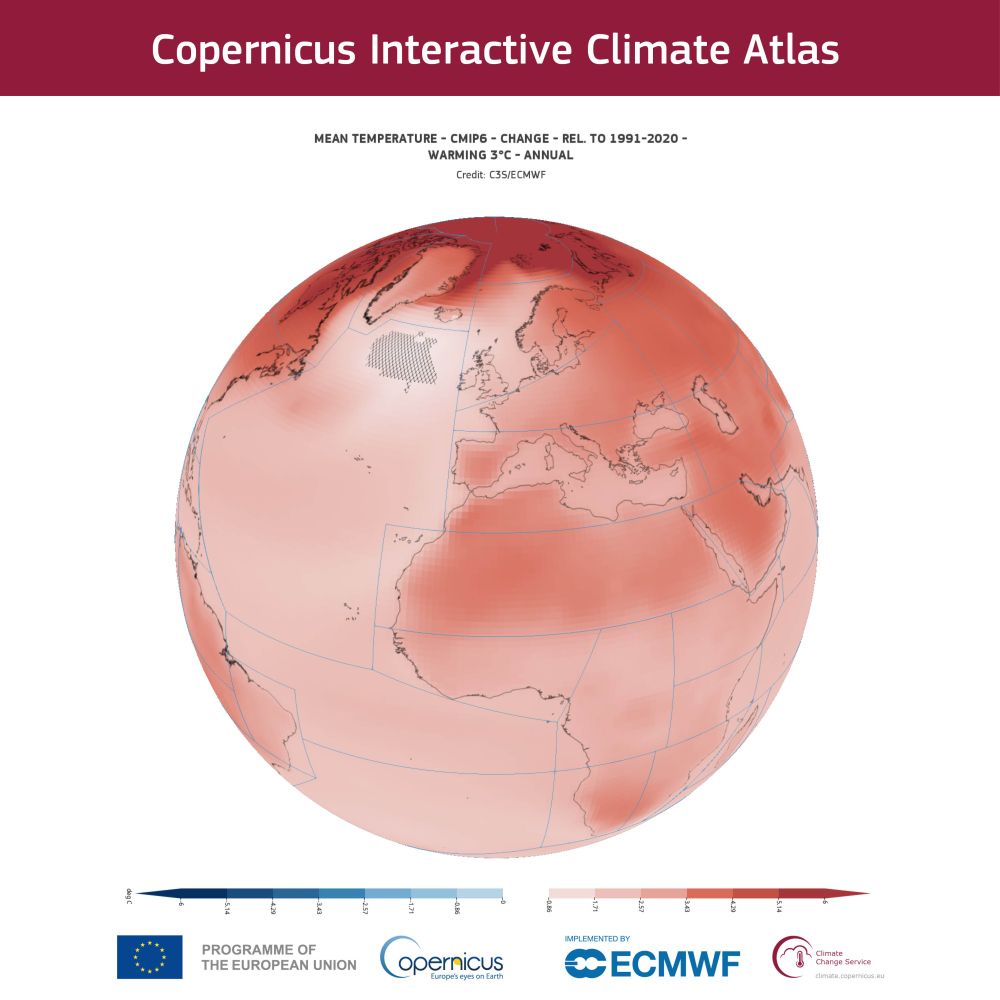
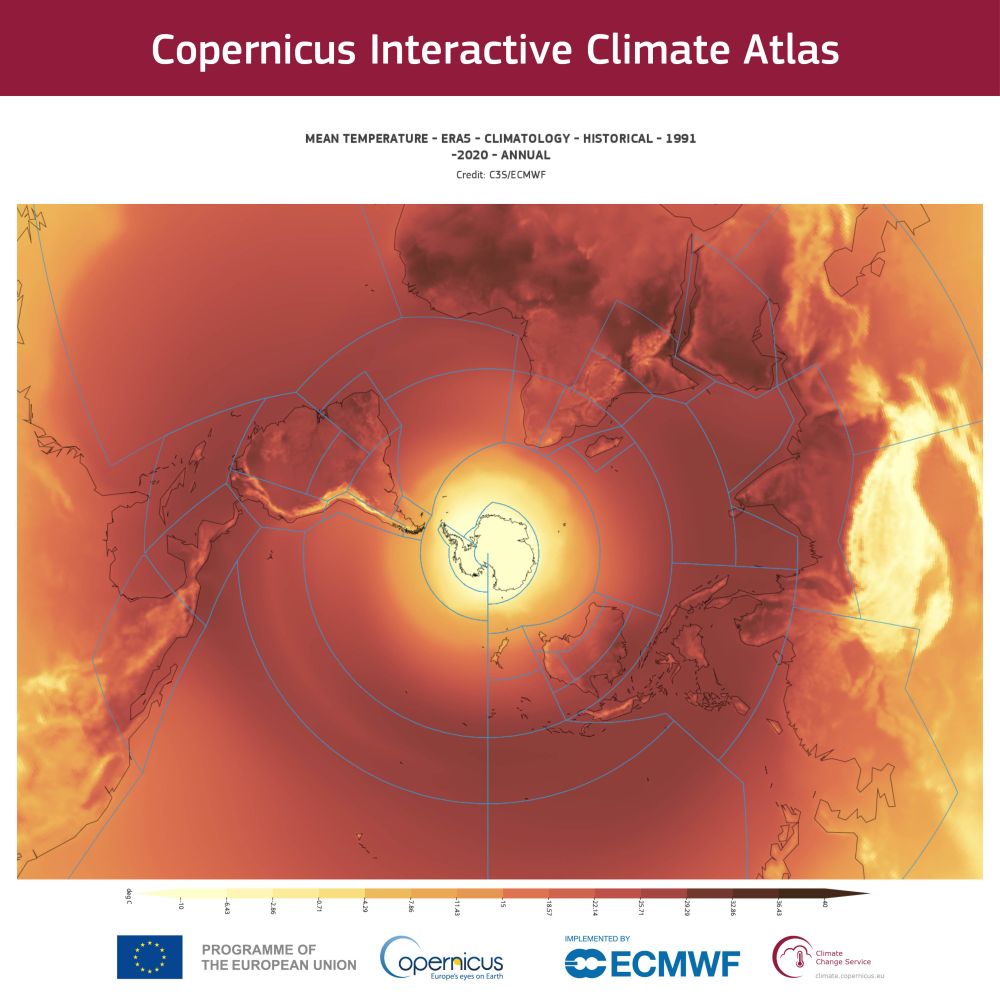
The C3S Atlas allows you to explore and analyse past and future climate monitoring and change information in a flexible way.🧵
No, but... While it is almost certain that 2024 will be more than 1.5°C above the pre-industrial level, the limit set by the Paris Agreement applies to a long-term average of at least 20 years.🧵
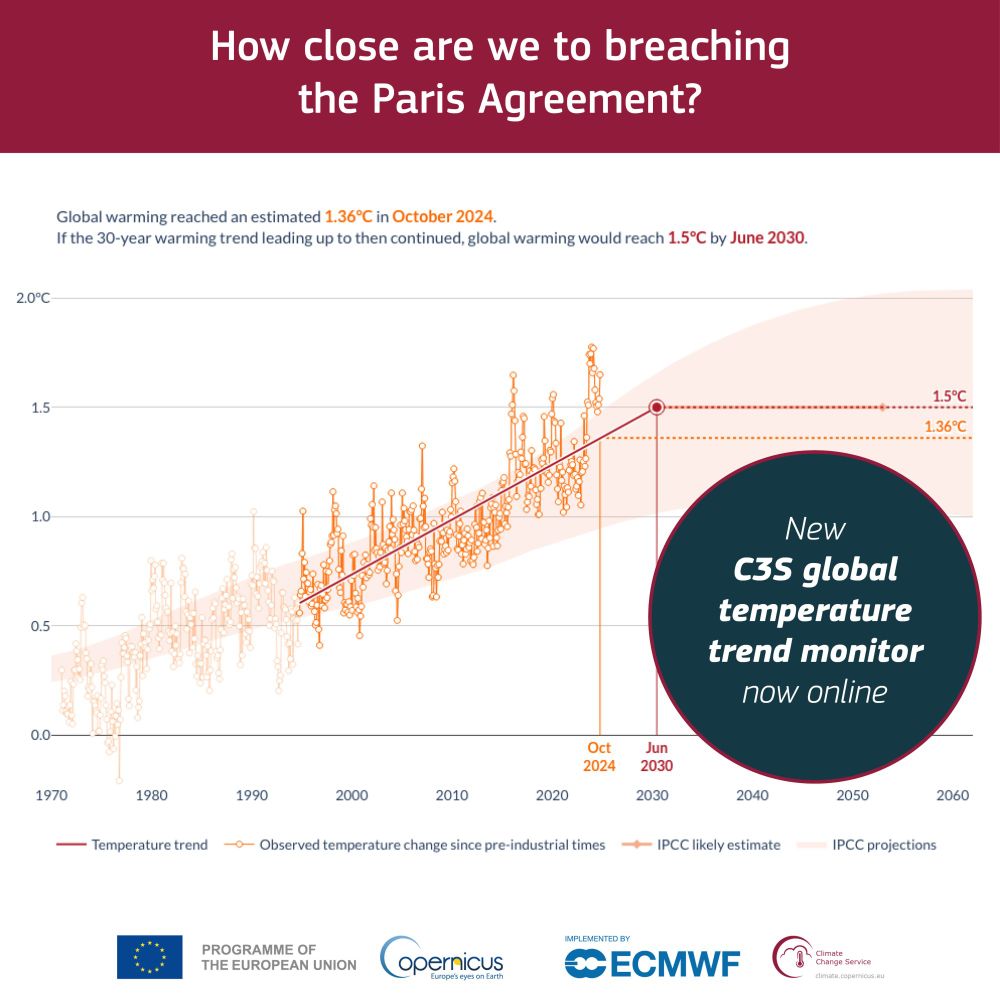
No, but... While it is almost certain that 2024 will be more than 1.5°C above the pre-industrial level, the limit set by the Paris Agreement applies to a long-term average of at least 20 years.🧵
www.economist.com/science-and-...
from The Economist


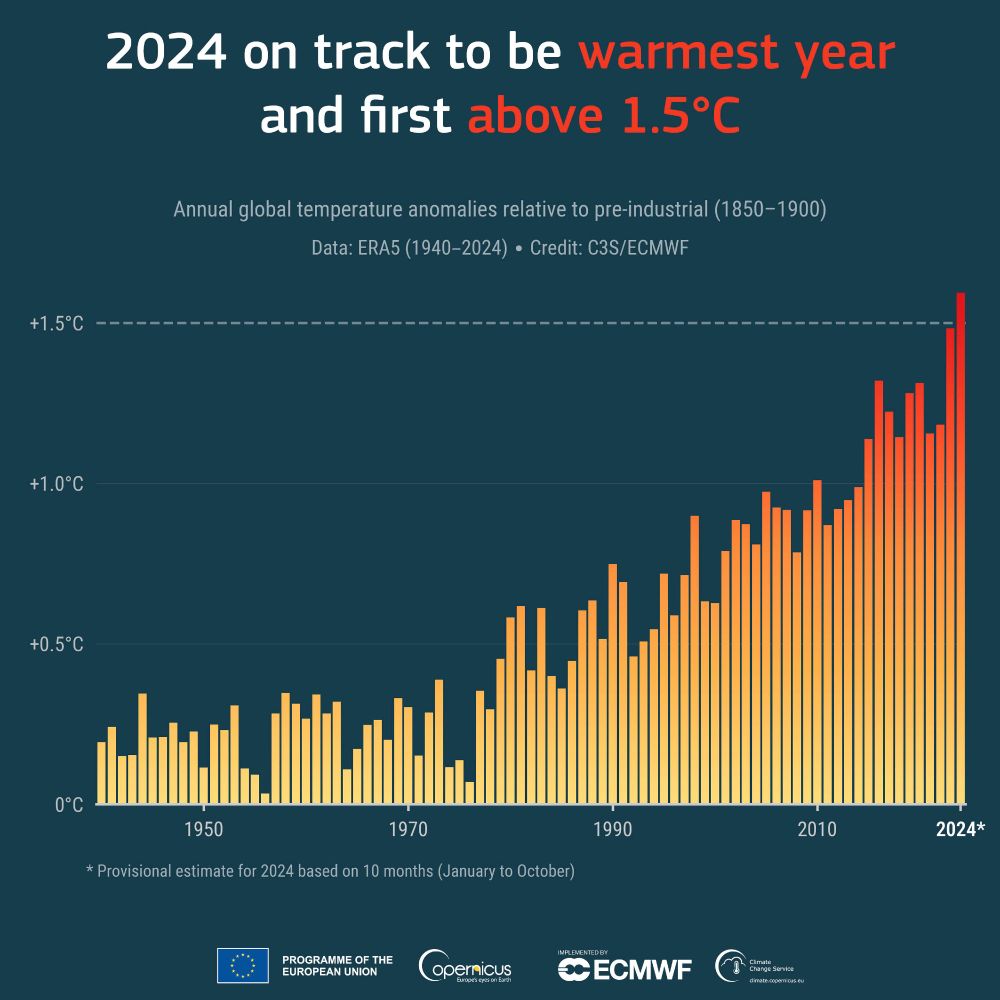

Best estimate is for 1.47°C above pre-industrial, but it could be above 1.5°C depending on the this month and next (of course).
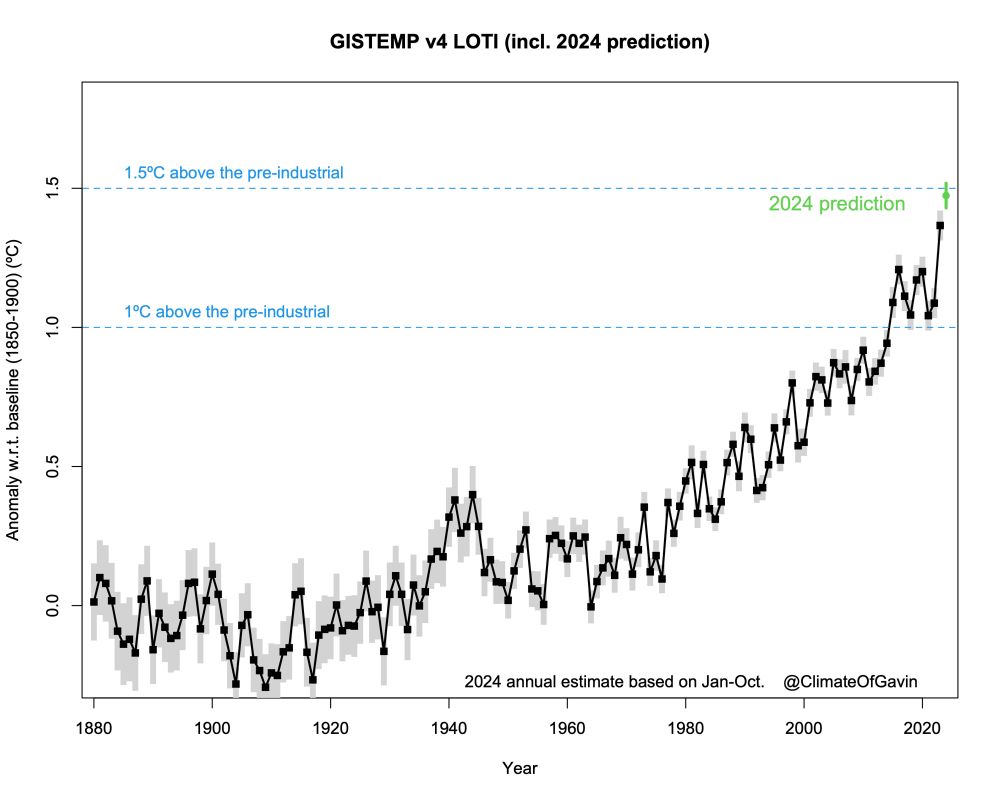
Best estimate is for 1.47°C above pre-industrial, but it could be above 1.5°C depending on the this month and next (of course).
bit.ly/3RH0yvR @ScienceMagazine
bit.ly/3RH0yvR @ScienceMagazine
It has a neat figure highlighting the feasibility, scalability, ease of MRV, environmental consequences, public perception, cost, and permanence of CDR pathways: www.unep.org/resources/em...
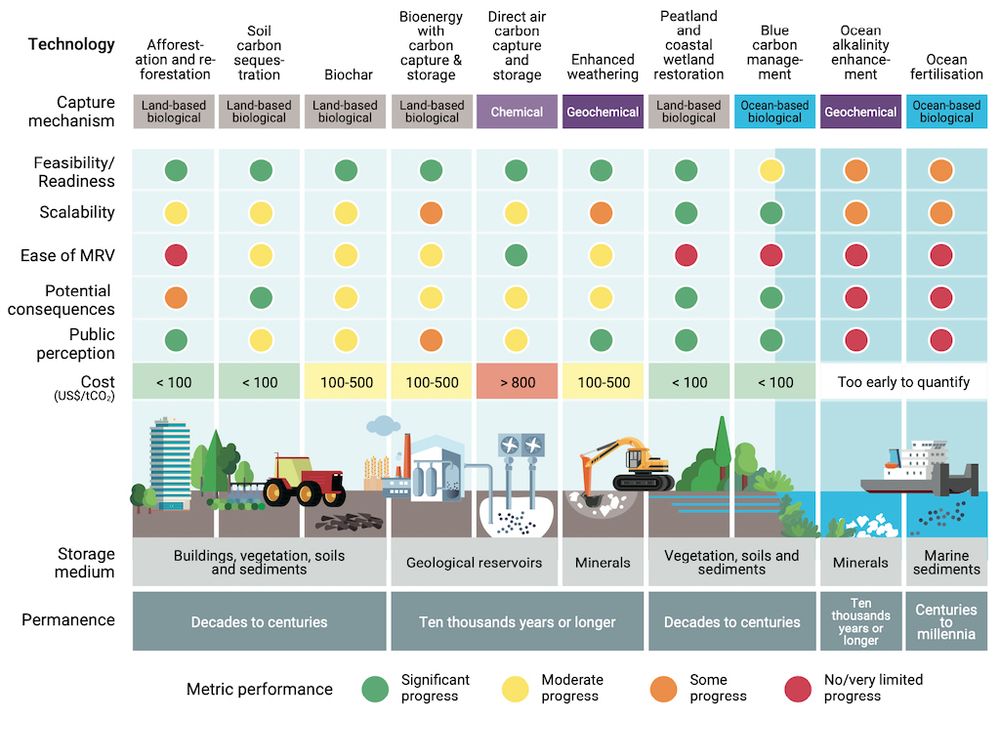
It has a neat figure highlighting the feasibility, scalability, ease of MRV, environmental consequences, public perception, cost, and permanence of CDR pathways: www.unep.org/resources/em...
🧪🦑🌎
rdcu.be/drFvO

🧪🦑🌎
rdcu.be/drFvO
Incorporating #DeepSea #Biodiversity into #ClimateChange Policy.
@DeepStewardship
👉 www.dosi-project.org/wp-content/u...
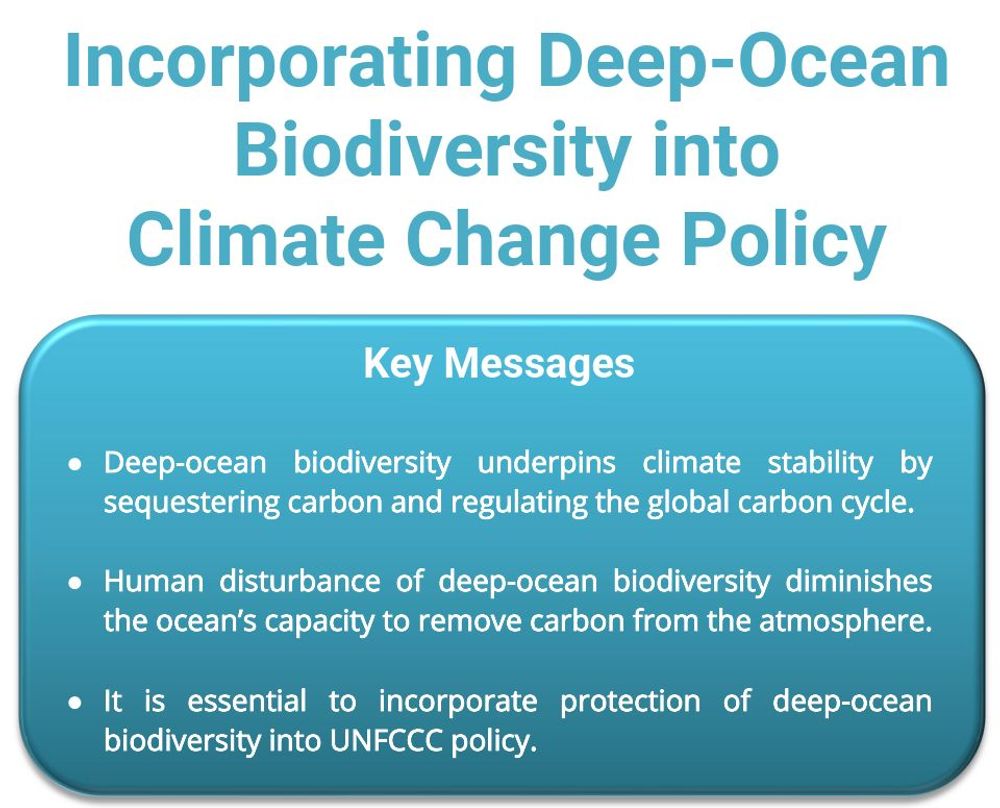
Hopefully it will prove transitory, but its a worrying sign.
Our best estimate is that this was the first day when global temperature was more than 2°C above 1850-1900 (or pre-industrial) levels, at 2.06°C.


Hopefully it will prove transitory, but its a worrying sign.
www.mbari.org/news/mbari-t...

www.mbari.org/news/mbari-t...
We need a code of conduct.
www.aspeninstitute.org/wp-content/u...
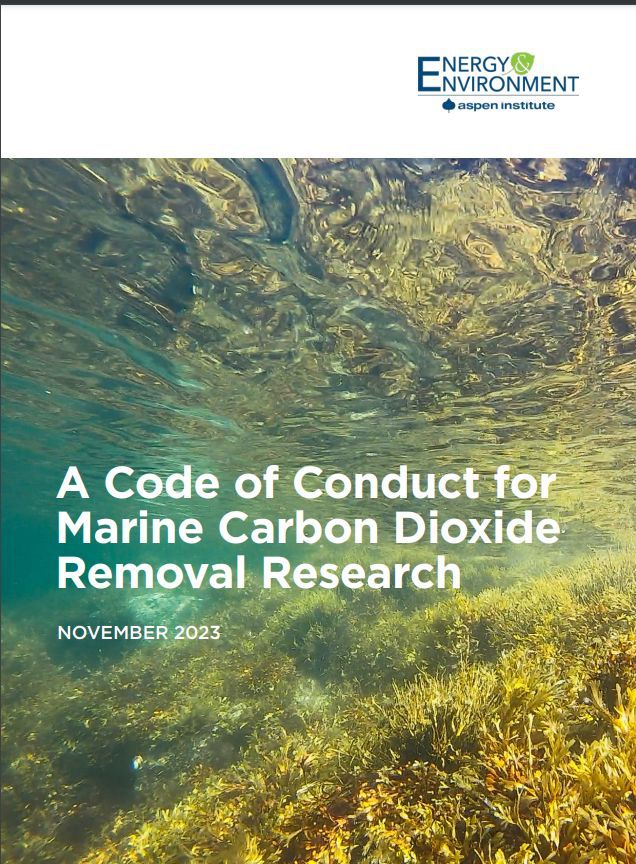
We need a code of conduct.
www.aspeninstitute.org/wp-content/u...
10th worst fossil financer in the world
Do carbon removal companies care?
www.reuters.com/sustainabili...
![Occidental to sell carbon dioxide removal credits to TD Bank
Reuters
November 1, 20232:12 PM GMT+1Updated 21 hours ago
[1/2]A sign for TD Canada Trust in Toronto, Ontario, Canada December 13, 2021. REUTERS/Carlos Osorio/File Photo Acquire Licensing Rights
Companies
Occidental Petroleum Corp
Toronto-Dominion Bank
Nov 1 (Reuters) - Occidental Petroleum (OXY.N) said on Wednesday it would sell 27,500 metric tons of direct air capture (DAC) carbon dioxide removal credits to TD Bank (TD.TO) over four years.
The credit purchase represents one of the largest DAC credit deals by a financial institution, the companies said, and TD plans to some of the credits to offset its own operational emissions.
TD will buy the credits from Occidental's carbon capture, utilization and sequestration unit 1PointFive's STRATOS, a DAC plant under construction in Texas.
The U.S. oil and gas producer is aiming to build a profitable business from providing services and technologies that pull CO2 out of t](https://cdn.bsky.app/img/feed_thumbnail/plain/did:plc:66lbtw2porscqpmair6mir37/bafkreigkbnrizloecno74fewa66qpomjhbzwif5atgpfujgr2sd43p6to4@jpeg)
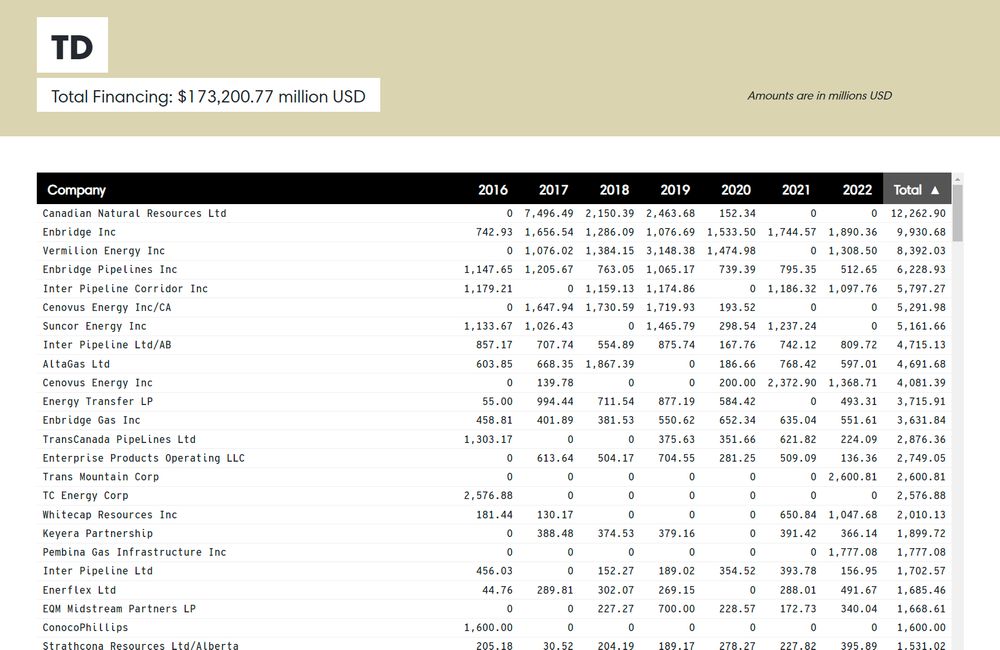
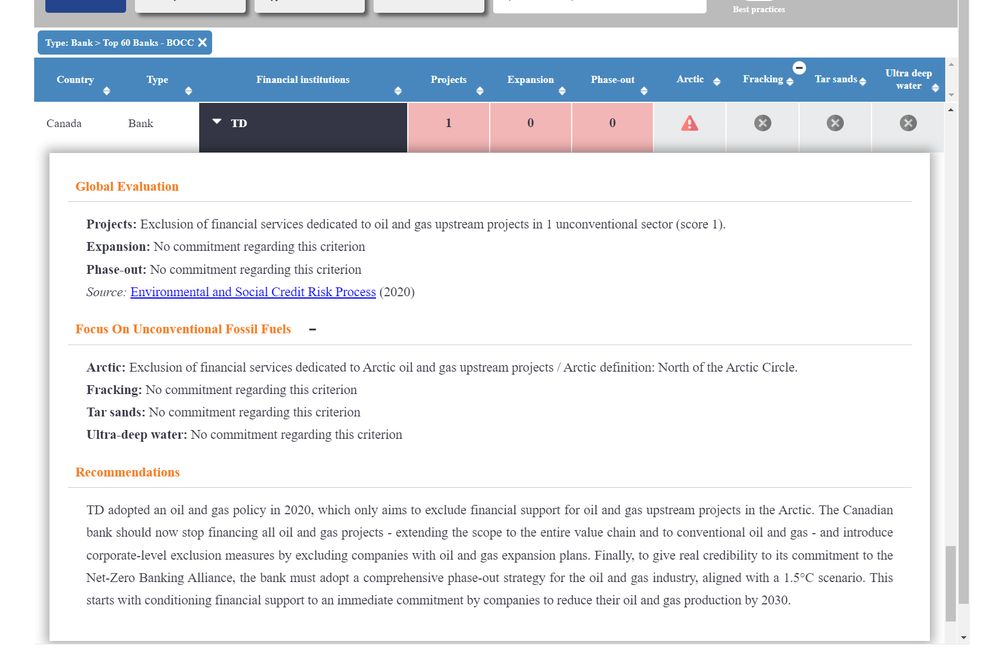
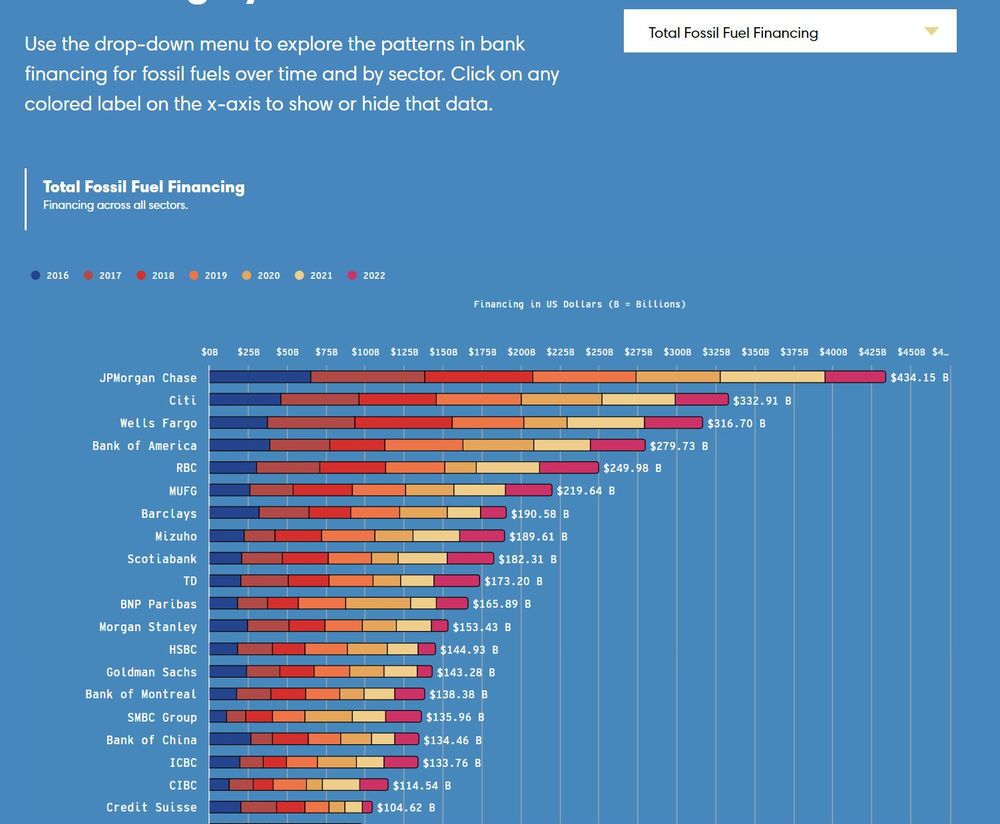
10th worst fossil financer in the world
Do carbon removal companies care?
www.reuters.com/sustainabili...
That's the annual global price tag of extreme weather events attributed to climate change. A new study out in @NatureComms: bit.ly/45naE8y
That's the annual global price tag of extreme weather events attributed to climate change. A new study out in @NatureComms: bit.ly/45naE8y


